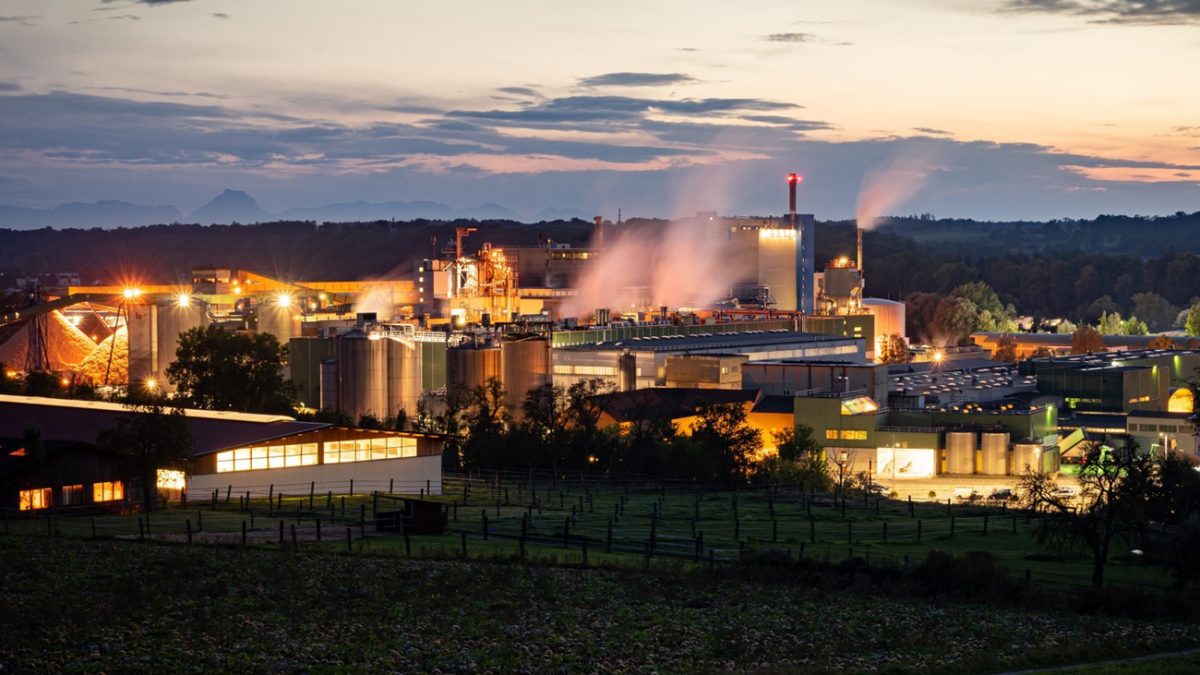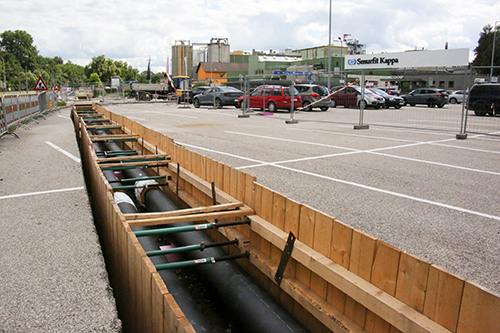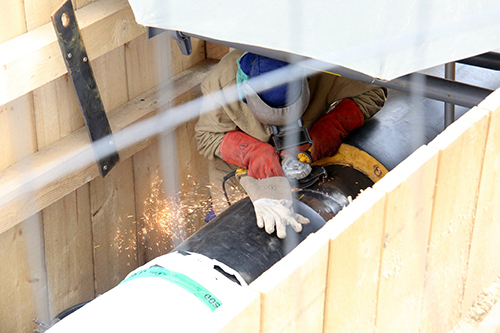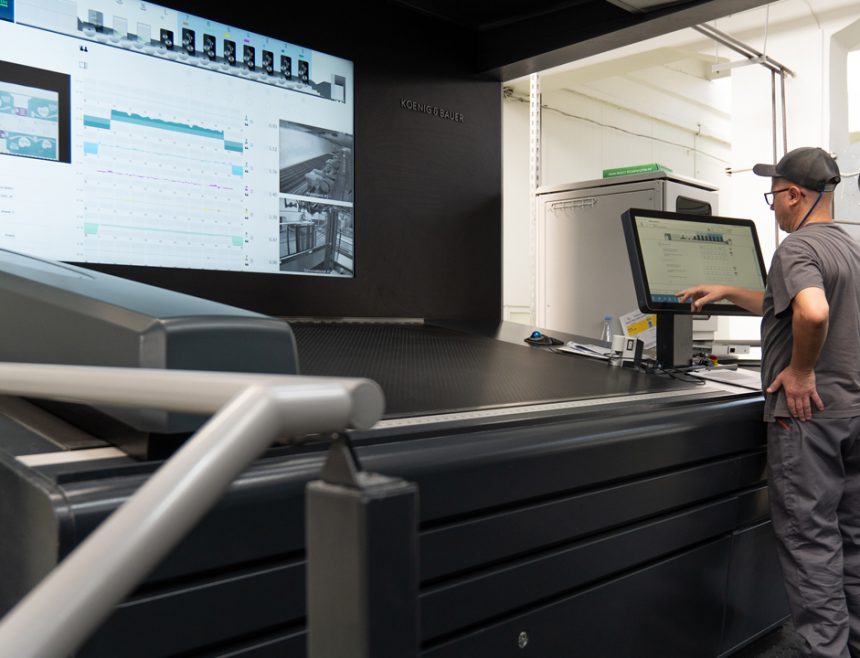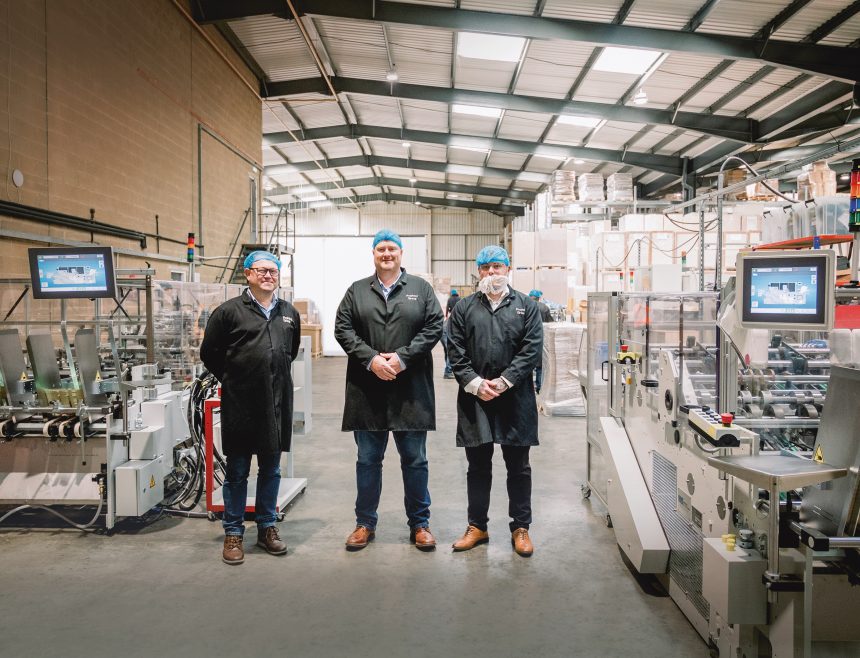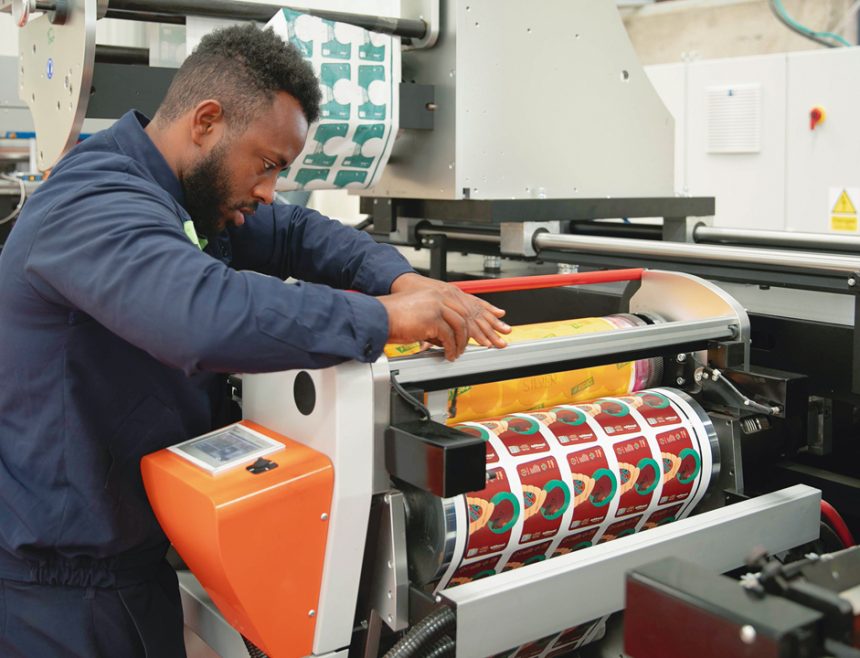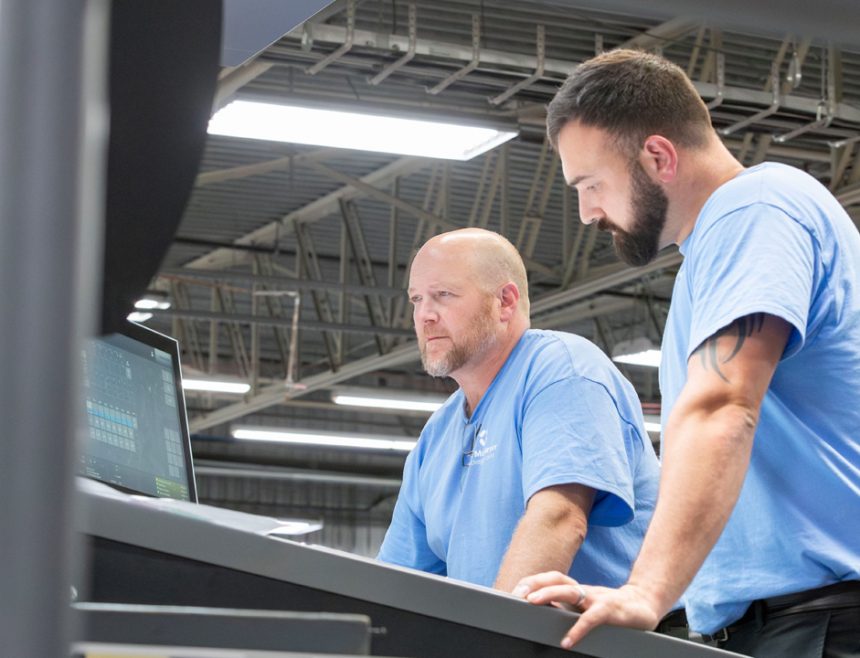The Smurfit Kappa paper mill in Nettingsdorf, Austria, has launched a sustainable district heating project that will benefit 20,000 homes across three communities when completed. The scheme will capture excess heat generated from the Nettingsdorf paper mill to provide heating for local homes, businesses and schools.
Civil works have commenced on the project, with the first trenches excavated and pipes laid in June. The central heat distribution building and equipment will be erected in the coming months and it is planned that a local elementary school and the kindergarten in Nettingsdorf will be the first premises to benefit from the scheme early next year.
This follows on from a recent €134m programme of investment at the Nettingsdorf mill which included the installation of a new recovery boiler that allows the recovery of biomass generated in paper pulp production. This not only boosted energy optimisation but cut CO2 emissions by 40,000 tonnes annually. Once fully operational, the new central heating network will provide heating to households in the neighbouring villages of Kremsdorf, Haid and Ansfelden and replace the fossil fuels previously used. The production process will generate up to 25 MW of heat that will help save approximately 21,000 tonnes of CO2.
Günter Hochrathner, CEO, Smurfit Kappa Nettingsdorf, said, “This project is another important step forward in advancing sustainability here at our mill in Nettingsdorf. We will capture the waste heat in an innovative and efficient way to sustainably heat homes and businesses. We anticipate that this will significantly reduce the CO2 emissions of the surrounding district.”
Garrett Quinn, Chief Sustainability Officer, Smurfit Kappa, added, “Supporting our local communities is every bit as important as our day-to-day business of creating packaging. We are focused on working in partnership with local people to identify the sustainability projects that will make a positive difference to their lives. The innovative district heating scheme underway at Nettingsdorf is the latest example of this type of community sustainability initiative and will be a great resource for the area.”
Smurfit Kappa has had success with a similar scheme operated from its Pitea paper mill in Sweden which has been converting excess heat into central heating for domestic and business premises in the local community for over 40 years. Both projects are a further example of how Smurfit Kappa works with local communities to minimise waste and find uses for by-products.
Commenting on the district heating project, Mayor of Ansfelden, Christian Partoll, said, “I am delighted to announce that this district heating project is progressing according to plan and that we are connecting all of the municipality properties of Ansfelden to the new district heating system. This is a momentous occasion, and we are doing everything we can to strive towards becoming a climate-neutral town. This project has been immensely important for us, and with the help of Smurfit Kappa, and together with other measures that are currently being drawn up, it will help create a positive future for our children and grandchildren.”
The remaining civil work in the first phase is due to be completed this summer and the project remains on schedule to provide service to the first premises in early 2023.

